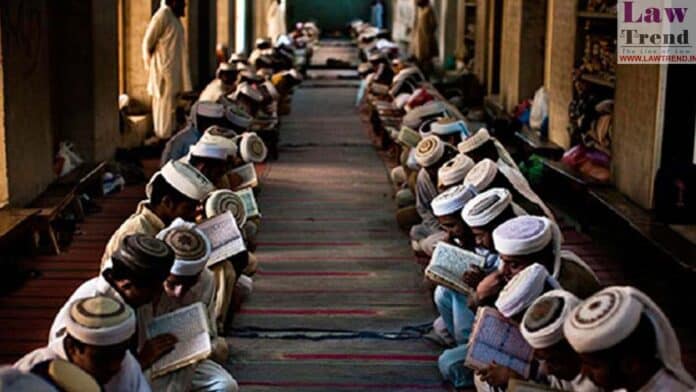The Supreme Court of India has scheduled a final hearing for August 13 to deliberate on several petitions contesting the Allahabad High Court’s decision to nullify the Uttar Pradesh Board of Madarsa Education Act, 2004. The High Court had earlier ruled that the Act was “unconstitutional” for violating the constitutional principle of secularism.
On April 5, the apex court had temporarily suspended the High Court’s judgment, citing that the complexities presented in the seven petitions warrant “closer reflection.”
The bench, led by Chief Justice D Y Chandrachud along with Justices JB Pardiwala and Manoj Misra, also designated lawyer Ruchira Goel as the nodal counsel to manage the electronic compilation of common documents related to the case.
During the proceedings, Senior Advocate Abhishek Singhvi, representing one of the petitioners, noted the filing of a contempt petition against the state government, raising further legal questions regarding the state’s compliance with the Act.
Chief Justice Chandrachud remarked on the readiness of the Supreme Court to move towards a final resolution. He pointed out the essential regulatory nature of the Madarsa board and questioned the High Court’s rationale behind its judgment that establishing the board was a breach of secularism. The Supreme Court found that the Madarsa Act did not inherently include any religious instruction, thus challenging the basis of the High Court’s decision.
The High Court’s ruling had also directed the relocation of approximately 17 lakh students, a directive the Supreme Court found unjustified, emphasizing the potential disruption it could cause to the students’ education.
Also Read
The state of Uttar Pradesh, represented by Additional Solicitor General K M Nataraj, defended the Act while acknowledging the High Court’s judgment. Nataraj highlighted the significant annual financial contribution of Rs 1,096 crore by the state towards madrasa education and clarified that no madrasas would be shut down.
The debate centers around the constitutionality of the UP Madarsa Board and the appropriateness of its management by the Minority Welfare Department rather than the education department, as argued by petitioner advocate Anshuman Singh Rathore.




